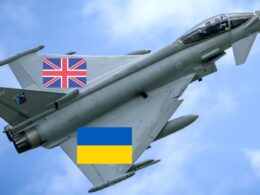In a thought-provoking editorial, The Financial Times – one of the most important newspaper in the world, renowned for its influential coverage of global economics and politics – has sparked a crucial debate on the future of Ukraine. The FT, whose readership includes many of the world’s most powerful decision-makers, has long been a bellwether for international affairs, making its stance on such matters particularly noteworthy.
The spectre of Donald Trump’s potential return to the White House, coupled with the nomination of staunch isolationist JD Vance as his running mate, has thrust a thorny question into the spotlight: what price should be paid for peace in Ukraine?
Trump’s bombastic claims of being able to end Vladimir Putin’s war of aggression overnight have been met with skepticism. Meanwhile, Hungary’s Viktor Orbán, ever the contrarian voice in European politics, has embarked on a self-styled “peace mission”, shuttling between world capitals with questionable results.
Amidst this diplomatic cacophony, Ukraine itself is striving to set the terms for a just peace. However, the nation faces a stark reality: with current levels of Western military support and restrictions on long-range weaponry use, there appears to be no clear military path to full liberation of occupied territories.
The toll on Ukrainian civilians is mounting. Millions face a harsh winter after Russian missile strikes devastated half the country’s power infrastructure. Recent polls suggest a growing appetite for peace negotiations among Ukrainians, with some even considering the once-unthinkable prospect of territorial concessions.
President Volodymyr Zelenskyy has proposed another multilateral peace conference before the US election, extending an invitation to Russia. However, the chasm between Ukraine’s desire for restored territorial integrity and Moscow’s aims of subjugation seems unbridgeable at present.
World leaders should avoid forcing Ukraine into an unfavourable settlement through threats of withheld aid. Such a move would not only be disastrous for Ukraine but would also undermine European security and Western credibility.
While complete restoration of Ukraine’s 1991 borders may not be immediately achievable, the country’s transformation into a prosperous democracy integrated with the EU – even with some territories still occupied – would represent a significant victory.
However, after nearly two and a half years of brutal conflict, many Ukrainians view land-for-peace deals with justifiable skepticism. Putin’s imperial ambitions extend beyond mere territorial gains, and his track record hardly inspires confidence in his willingness to negotiate in good faith.
For any peace deal to be viable, Ukraine’s allies must offer robust security guarantees that far exceed current levels of support. The question remains: are Western powers prepared to make such commitments?
As the conflict enters its next phase, it is imperative that Ukraine’s allies maintain their resolve and increase support to tilt the military balance in Kyiv’s favour. European nations, in particular, must step up or risk becoming passive bystanders to a settlement that jeopardises their own security. A just peace for Ukraine is not merely a matter of regional concern, but a litmus test for the international order. Only when Putin is left with no alternatives will he consider a peace that upholds Ukraine’s sovereignty and territorial integrity.








